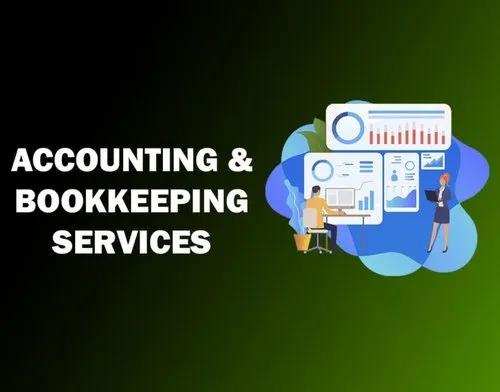In today’s fast-paced, data-driven world, businesses are under more pressure than ever to maintain accurate, efficient, and compliant financial records. Manual processes and legacy systems simply can’t keep up. That’s why SAP bookkeeping services are seeing a significant surge in demand in 2025. Whether businesses are scaling up, managing multiple locations, or striving for real-time insights, SAP bookkeeping has emerged as a smart, strategic solution.
This blog explores the reasons behind the growing demand for SAP bookkeeping services and why forward-thinking companies are making the switch.
What Are SAP Bookkeeping Services?
SAP bookkeeping services involve using SAP’s robust enterprise resource planning (ERP) platform to manage a company’s financial records, transactions, and reporting. Unlike traditional methods, SAP automates and integrates essential bookkeeping tasks—such as accounts payable, accounts receivable, bank reconciliations, and general ledger entries—into one centralized system.
The result? Clean, consistent, and compliant financial data that supports better business decisions and efficient operations.
1. Growing Demand for Real-Time Financial Insights
One of the most significant drivers behind the rising popularity of SAP bookkeeping is the need for real-time data. Business leaders no longer want to wait for month-end reports to understand their financial position. SAP’s advanced dashboard and reporting features give decision-makers instant visibility into key metrics like cash flow, expenses, receivables, and profit margins.
This level of insight helps businesses react faster to financial trends, reduce risks, and seize growth opportunities in real time.
2. Increased Regulatory and Compliance Pressures
With changing tax laws, evolving compliance regulations, and industry-specific financial standards, businesses can no longer afford bookkeeping errors. SAP’s built-in compliance tools help ensure every transaction meets regulatory requirements.
From audit trails to automatic tax calculations, SAP bookkeeping reduces the risk of human error while supporting seamless compliance. This is particularly important for businesses operating in highly regulated industries like finance, healthcare, and manufacturing.
3. The Rise of Remote and Hybrid Work Models
The shift to remote and hybrid teams has highlighted the inefficiencies of manual bookkeeping and siloed accounting systems. SAP bookkeeping enables remote access to financial data, allowing accounting teams, CFOs, and business owners to work collaboratively—no matter where they are located.
As businesses prioritize flexibility and cloud-based tools in 2025, SAP’s integrated and remote-friendly system makes it an obvious choice.
4. Growing Need for Scalable Solutions
Startups and mid-sized businesses often struggle to scale their finance operations as they grow. Manual systems that worked for 10 invoices per week break down at 100. SAP bookkeeping services are designed to scale with a business—whether it's expanding into new regions, acquiring new clients, or adding more departments.
The system accommodates multi-currency, multi-entity, and multi-location operations with ease, making it ideal for fast-growing companies.
5. Automation That Saves Time and Money
Manual bookkeeping is not only time-consuming but also costly. Repetitive tasks like invoice entry, payment processing, and reconciliation eat up valuable employee hours. SAP bookkeeping automates these workflows, reducing labor costs while improving accuracy.
By outsourcing SAP bookkeeping services to experts, companies can cut overheads, eliminate inefficiencies, and focus on core growth areas—without sacrificing financial control.
6. Support for Strategic Decision-Making
With SAP, bookkeeping isn’t just about compliance—it becomes a strategic asset. The platform’s real-time analytics and financial forecasting tools empower CFOs and founders to make smarter decisions.
Whether it’s budgeting, investment planning, or cash flow forecasting, SAP bookkeeping services offer actionable data that supports long-term business growth.
7. Integration with Other Business Systems
SAP bookkeeping isn’t just standalone software—it integrates seamlessly with other SAP modules like inventory management, procurement, payroll, and CRM systems. This full ecosystem approach streamlines business operations and ensures that financial data is always up-to-date across departments.
Such integration enables better resource planning and supports business agility, especially in industries with complex operational needs.
8. Better Vendor and Customer Relationships
Accurate bookkeeping means timely payments and well-managed receivables. SAP’s automation ensures vendors are paid on time, boosting trust and securing favorable terms. At the same time, businesses can track overdue payments and follow up promptly with customers.
This improved cash flow management not only enhances relationships but also ensures greater financial stability.
9. Rising Popularity of Outsourced SAP Bookkeeping
Many businesses are turning to third-party providers who specialize in SAP bookkeeping. These experts offer a cost-effective way to access SAP's full potential without hiring an in-house team. Outsourced SAP bookkeeping brings specialized knowledge, ongoing support, and cloud-based access—all while maintaining data security and compliance.
This model is particularly popular among small to mid-sized businesses looking to level the playing field without expanding their internal finance team.
Conclusion
The demand for SAP bookkeeping services is more than a passing trend—it’s a response to real business challenges and the need for smarter, more efficient financial management in 2025. From real-time insights and automation to compliance and scalability, SAP delivers powerful tools that modern finance teams can’t afford to overlook.
Whether you're a startup aiming to streamline your processes or a large enterprise managing global finances, SAP bookkeeping services offer the control, clarity, and confidence your business needs to grow in today’s competitive market.

